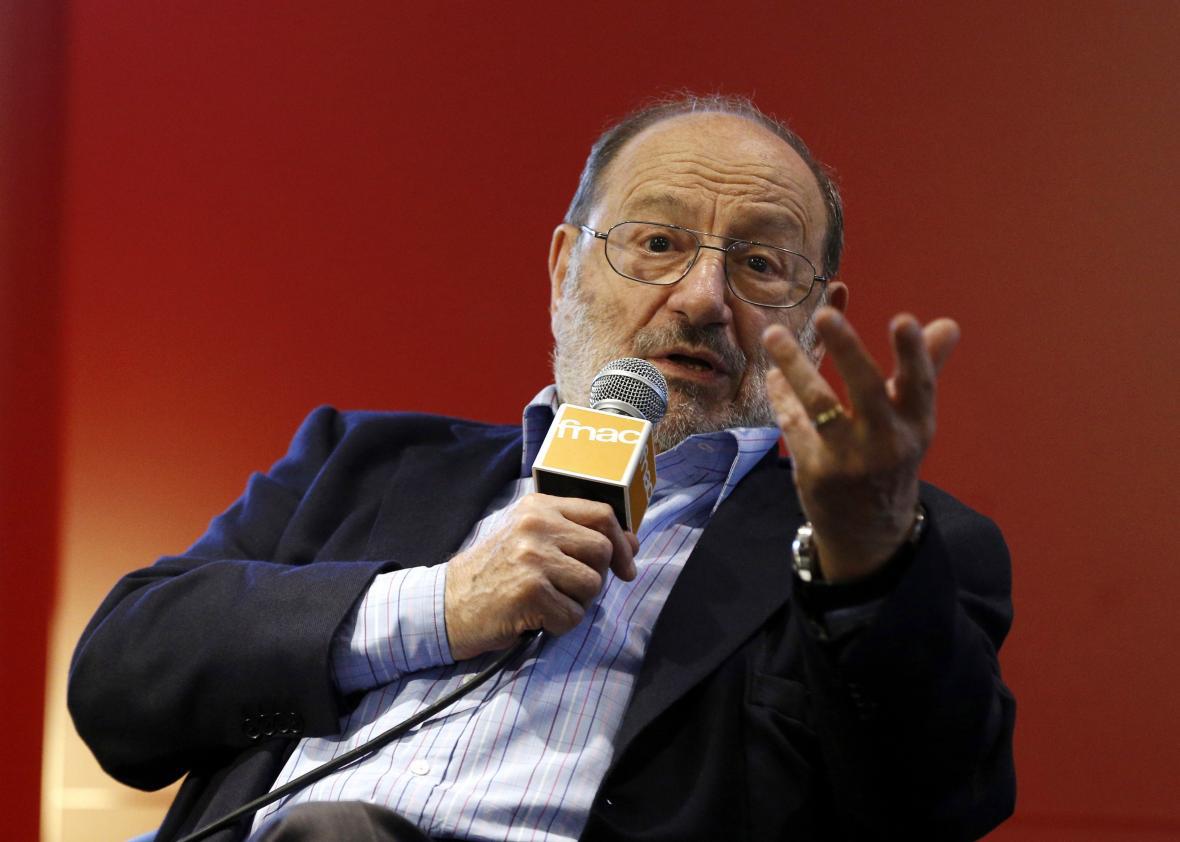Celebrated Italian intellectual Umberto Eco, widely considered to be one of the greatest writers in modern literature, died late on Friday after battling cancer. He was 84. Tributes quickly poured in from around the world for the scholar who became famous when he suddenly decided to write a novel in 1980, The Name of the Rose, which was made into a movie starring Sean Connery in 1986.
Eco, a semiotician, cultural critic, philosopher and essayist was one of the rare breed of public intellectuals who was respected both for his academic work as for the novels that he once described as what he liked to write on weekends. The scholar’s interests were amazingly broad from the obscure to popular culture and he analyzed everything from James Bond to the Internet.
“[He was] an extraordinary example of a European intellectual, combining unique intelligence of the past with a limitless capacity to anticipate the future,” Italian Prime Minister Matteo Renzi said. “It’s an enormous loss for culture, which will miss his writing and voice, his sharp and lively thought, and his humanity.” La Repubblica, the newspaper where Eco frequently wrote said: “The world has lost one of the most important men in contemporary culture.”
Eco was well-known and respected and always pushed back against those who said that he needed to make his work more easy to grasp if he hoped to gather a larger audience. “It’s only publishers and some journalists who believe that people want simple things,” Eco famously told the Guardian in a 2011 interview. “People are tired of simple things. They want to be challenged.”
He also hated it when journalists asked him why he was popular. “‘Tell me why do so many people like your books?’ And I feel offended,” Eco said. “It’s like asking a beautiful woman why all the men are in love with you. ‘Well, because I am beautiful.’”
